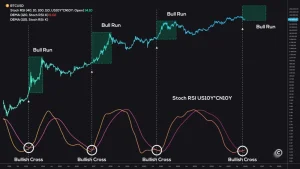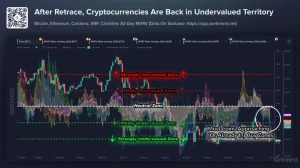Nigeria’s Youth Are Betting Their Futures: How Gambling and Crypto Speculation Are Weakening Capital Markets

Nigeria’s financial landscape is undergoing a troubling transformation as gambling and cryptocurrency speculation capture the attention—and disposable income—of its young population. With limited access to stable investment options and persistent economic pressures, millions are turning to high-risk activities in search of quick profits. Financial analysts warn that this behavioral shift is eroding participation in formal capital markets, weakening long-term savings, and threatening the country’s economic stability. As digital betting platforms and crypto exchanges expand rapidly, Nigeria’s policymakers face mounting pressure to balance innovation with investor protection and restore confidence in the nation’s legitimate financial infrastructure.
The Rise of Risk Culture in Nigeria’s Financial Scene
Over the past five years, Nigeria has witnessed a dramatic rise in speculative financial behavior, primarily driven by the convergence of gambling, sports betting, and cryptocurrency trading. Once viewed as peripheral activities, these sectors have become mainstream among Nigeria’s tech-savvy youth—many of whom see them as alternatives to traditional investment vehicles that yield modest returns.
According to financial observers, economic hardship, double-digit inflation, and the depreciation of the naira have fostered a culture of urgency. Young Nigerians, disillusioned with stagnant wages and limited job prospects, are chasing rapid wealth through high-risk platforms that promise instant gratification.
While these speculative ventures may appear empowering, they are fundamentally diverting liquidity and attention away from Nigeria’s capital markets, which depend on consistent investor participation to remain robust and efficient.
Crypto Speculation: Promise and Peril
Nigeria ranks among the world’s most active cryptocurrency markets, with millions of transactions processed monthly through decentralized exchanges. Crypto assets such as Bitcoin and stablecoins have become popular hedges against naira volatility. Yet, behind this enthusiasm lies an increasing dependency on unregulated digital markets, where investors are exposed to scams, volatility, and the absence of consumer protection.
Financial experts argue that while blockchain technology has undeniable potential, speculative trading—rather than innovation—has become the dominant narrative in Nigeria’s crypto scene. The result is a market where short-term profit-seeking overshadows long-term financial planning, reinforcing instability in personal and national portfolios.
In 2024, regulators began introducing clearer frameworks to govern virtual asset transactions, but enforcement remains inconsistent. Without stronger oversight and financial education, Nigeria risks nurturing a generation more fluent in gambling apps and crypto charts than in sustainable wealth creation.
Betting Boom: A Billion-Rupee Distraction
Parallel to crypto’s rise, sports betting and online gambling have become one of Nigeria’s fastest-growing industries. Analysts estimate that millions of Nigerians place bets daily, with cumulative stakes reaching billions of rupees annually. The sector’s explosive growth has been fueled by smartphone penetration, digital payment systems, and aggressive marketing campaigns targeting the youth demographic.
However, this boom comes at a cost. Studies reveal that many bettors allocate a significant portion of their disposable income to gambling, reducing their ability to save or invest in traditional assets such as mutual funds, stocks, or bonds. The emotional toll—marked by addiction, financial distress, and reduced productivity—adds another layer of concern.
Economists warn that the country’s obsession with gambling risks undermining the development of a savings culture, a critical ingredient for capital market growth and economic resilience.
Capital Markets Under Strain
Nigeria’s capital markets, once among Africa’s most promising, are now struggling to attract and retain domestic investors. The shift toward speculative and informal financial activities has resulted in declining retail participation and thinning liquidity in equities and bond markets.
Market analysts point to a psychological shift in investor behavior. Instead of patient, long-term capital accumulation, there is a growing preference for instant returns—a mentality incompatible with the slower, compounding nature of traditional investment.
This behavioral drift has ripple effects across the economy. As fewer individuals and institutions invest in stocks and government securities, the cost of capital rises, making it harder for businesses to fund expansion. In the long term, this could dampen Nigeria’s industrial competitiveness and economic growth prospects.
Regulatory Dilemma: Innovation vs. Protection
Nigeria’s policymakers face a difficult balancing act: how to encourage technological innovation while curbing financial recklessness. The Central Bank of Nigeria (CBN) has oscillated between caution and permissiveness in its approach to digital assets, at times imposing restrictions that were later softened under industry pressure.
Meanwhile, the National Lottery Regulatory Commission and related bodies have struggled to keep pace with the rapid digitalization of gambling services. Many operators now function beyond the reach of domestic regulation, further complicating enforcement efforts.
Experts suggest that the solution lies not in blanket bans but in comprehensive regulation, taxation frameworks, and targeted financial literacy programs that help citizens understand both the risks and rewards of emerging financial tools.
The Human Cost: A Generation Betting Its Future
Beyond the numbers lies a deeper societal challenge. Many young Nigerians now view gambling and crypto trading as legitimate career paths rather than high-risk ventures. Social media influencers, flaunting overnight success, reinforce this illusion, drawing more participants into speculative bubbles.
This growing dependence on luck-driven income reflects a broader sense of economic disillusionment. As traditional employment and investment avenues fail to deliver security, speculative finance becomes both an escape and a symptom of deeper systemic dysfunction.
Unless the government and private sector work collaboratively to expand access to stable investment opportunities and financial education, Nigeria risks entrenching a generation trapped in cycles of risk-taking and regret.
A Call for Balance and Reform
The twin rise of gambling and cryptocurrency speculation underscores the urgency of reforming Nigeria’s financial ecosystem. Rather than demonizing innovation, the goal should be to channel technological progress into regulated, transparent systems that empower rather than exploit.
By strengthening financial literacy, incentivizing participation in formal capital markets, and enforcing accountability across digital platforms, Nigeria can reclaim the narrative from speculative opportunism to sustainable growth.
Conclusion
Nigeria stands at a crossroads between financial innovation and economic vulnerability. The rapid expansion of gambling and crypto speculation has exposed cracks in the nation’s financial foundation—threatening savings, investment stability, and generational prosperity. Yet, with decisive policy action, education, and a renewed commitment to responsible finance, Nigeria can transform these challenges into an opportunity for reform. The future of its capital markets—and the wealth of its people—depends on it.




